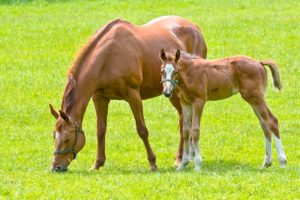Standardizing Equitation Science Research
- Topics: Article
After 10 years of equitation science, research is evolving, interest is growing, possibilities are expanding, and studies are multiplying. Equitation science has now reached a point where, according to one of the field’s pioneers, it needs specific structures in place to keep the work efficient and reliable.
“It’s important to reach some consensus on how to conduct equitation science, and when we do, it’s the horses that will ultimately benefit from that,” said Paul McGreevy, BVSc, MRCVS, PhD, MACVSc, professor of animal behavior and animal welfare science at the University of Sydney in New South Wales, Australia. McGreevy presented the combined work of 10 equitation scientists at the 2014 International Society for Equitation Science (ISES) conference, held Aug. 6-9 in Bredsten, Denmark.
Currently, equitation scientists across the globe carry out research using similar systems, methods, and materials, but not necessarily with any means of direct comparison across studies. For example, researchers often study cortisol concentrations to evaluate horses' stress levels, but collection methods vary greatly from one study to another. They also evaluate rein tension, but not always in a harmonized way that would allow one study to fully benefit from another. Under-saddle pressure readings, infrared technology, and thermography could also be standardized through a common equitation science protocol.
“During this conference we’ve heard the term ‘gold standard’ at least five times,” McGreevy said. “But without a common protocol, we still have not defined what that gold standard is (in each of the research situations)
Create a free account with TheHorse.com to view this content.
TheHorse.com is home to thousands of free articles about horse health care. In order to access some of our exclusive free content, you must be signed into TheHorse.com.
Start your free account today!
Already have an account?
and continue reading.

Related Articles
Stay on top of the most recent Horse Health news with


















